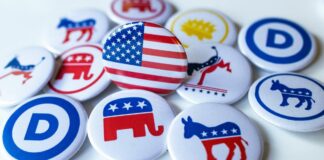“The amount of negative impact this will have will last decades if not forever turn the tide of competition with China in favor of China,” said Captjur CEO Bob Bilbruck.
QUICK FACTS:
- Joe Biden ordered emergency measures on Monday, declaring a two-year tariff exemption on panels from Southeast Asia in a bid to promote the “climate change” aspect of his Build Back Better agenda.
- Biden is going so far as to invoke the Defense Production Act to do so, even amid an ongoing Commerce Department inquiry into possible trade violations involving Chinese products. That inquiry is looking into whether four countries in Southeast Asia that supply about 80% of U.S. solar panels and parts—Cambodia, Malaysia, Thailand, and Vietnam—are using components from China that should be subject to U.S. tariffs.
- American solar panel manufacturer First Solar Inc. is criticizing Biden’s move, arguing that freezing these tariffs grants “unfettered access to China’s state-subsidized solar companies for the next two years” and that using the Defense Production Act is “an ineffective use of taxpayer dollars and falls well short of a durable solar industrial policy.”
- The majority of the world’s solar panels, and the materials used to make them, come from China, according to the Committee on Energy and Commerce Staff.
- Even though the U.S. can extract these minerals in its own territory, production and mining of these materials in America are highly limited due to heavy environmental regulations, like those imposed by the Biden admin.
- “The amount of negative impact [ending these tarrifs] will have will last decades if not forever turn the tide of competition with China in favor of China,” said Bob Bilbruck, CEO of the consulting firm Captjur. Bilbruck went on to argue that President Donald Trump’s tariffs “had been keeping China in check” and that lifting them now “will allow China (to gain) back full control of the import and export market, thus strengthening their country and weakening the US further in this area.”
U.S. PRODUCTION WOULD BE “SUPERIOR TO WHAT’S CURRENTLY BEING DONE IN CHINA“:
- Drew Horn, a former U.S. Army Green Beret and founder of a company called GreenMet, whose goal is to secure these minerals in the supply chain, points out that China’s monopoly over rare earth minerals creates a national security issue.
- “It’s incredibly difficult to synchronize and bring all of it together in a way that actually moves the needle,” said Horn. “Because what you’re talking about is essentially creating a vertically aligned supply chain that now only exists in China.”
- Horn went on to explain that America’s production of rare earth materials would “actually be superior to what’s currently being done in China because it would have regular regulatory oversight and better technology that would be forced because of the environment here.”
- The Ronald Reagan Institute reported last November the great need for the U.S. to become more self-reliant. “China’s push for self-reliance starkly contrasts with America’s increasing dependence on imports, including in supply chains critical to national security such as rare earth minerals and semiconductors,” the report stated.
- “We’ve given it to China. We’ve essentially ceded it to China and that impacts everything from our F-35 fighter aircraft to the phones that we use every day in our lives,” said Roger Zakheim, Director of the institute.
BACKGROUND:
- The Commerce probe, launched in March, came following last year’s ban on solar panels and parts that were suspected of having links to forced labor in China’s Xinjiang Province, where more than a million Uighur Muslims have been detained in “reeducation camps” and experience “intense surveillance, religious restrictions, forced labor, and forced sterilizations.”
- The World Economic Forum (WEF) has been using the phrase “Build Back Better” as far back as 2018, the phrase standing for efforts aimed at “integrating climate goals” and “reducing longer-term risks linked to climate change.” The WEF—the group implementing the worldwide “Great Reset” agenda—has installed its ‘Global Future Council on China’ to bolster China’s “taking an increasingly active role in reshaping the international system of climate change, digital transformation and economic development,” the WEF webpage for the council reads. The WEF’s Global Future Council on China will “explore emerging models of Chinese leadership adapted to a new norm of globalization” and “make recommendations for building trust between China and the rest of the world – based on mutual respect and shared interest – in pursuing strategic cooperation in areas such as climate change, health research and sustainable technologies.” “The council will illustrate how business leaders both inside and outside China can navigate this changing landscape to bring an entrepreneurial approach to solving global challenges.”
- Joe Biden is an “agenda contributor” for the WEF. In his 2017 address to the WEF, Biden pledged he would “stand with” the organization, promising, “I will continue to use my voice and my power as a citizen—doing whatever I can to keep our transatlantic alliance strong and vibrant—because our common future depends upon it.”






